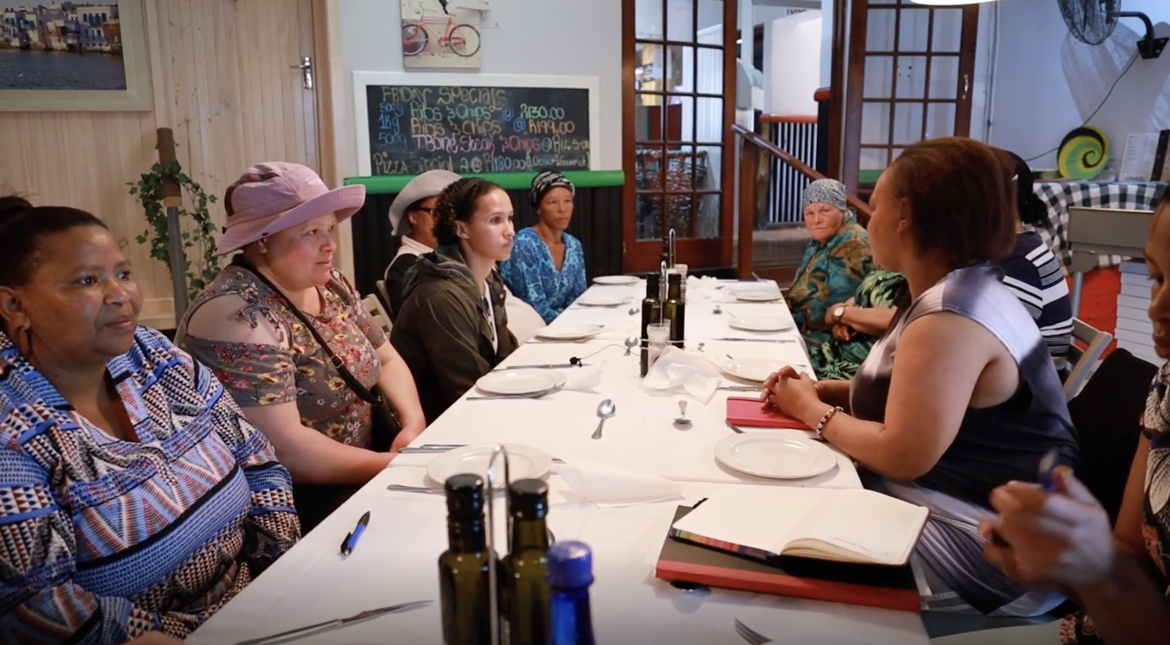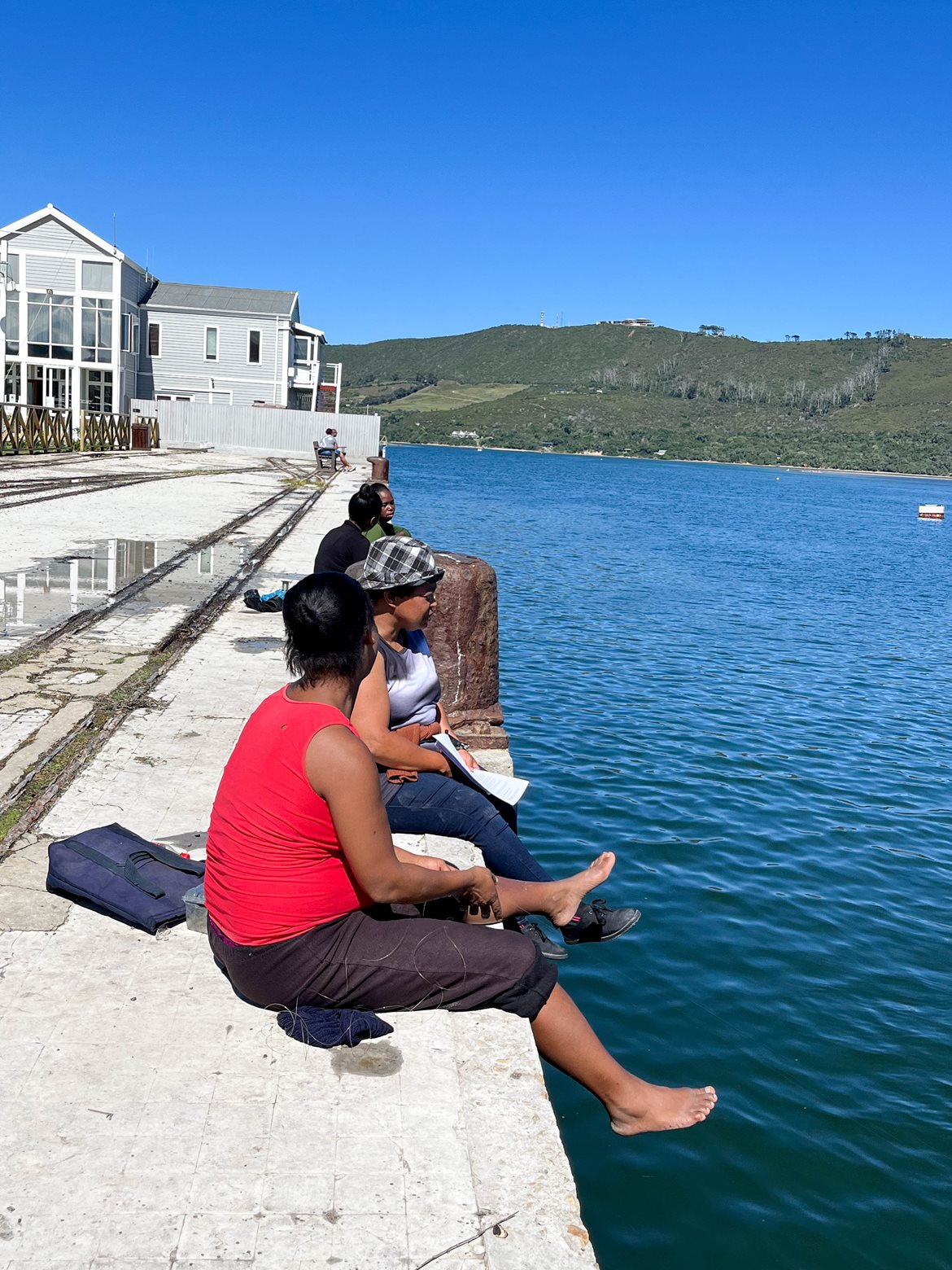A clear gender marker ‘appears’, separating out the roles of male and female. The adage, ‘teach a man how to fish and he will fish for a lifetime’ connotes this patriarchal view. However, there is a global movement where women are more visible, foregrounding themselves in the fishing industry, changing the narrative, defying gender stereotypes, in the fishing industry. The woman brings an added layer to the fishing activity because of her nurture instincts, she also fishes to alleviate socio-economic circumstances and feed families while enjoying the ocean, taking a fish to place in the pot and keeping the environment clean like she keeps her house clean.

Anne, the mother of Charleine and Melissa, says when she opened her eyes as a child, her parents, mother, and father were at the sea fishing for a living. She goes on to say, “fishing is like a hobby for [her].” [She] was born into a family that fished for a living.” Growing up close to the ocean instilled a deep love for it in her, and she has taught her daughters how to love and care for the ocean. Anne says, “I taught my children, only take as much as you can use; we cannot be wasteful, because the sea is our life.” The knowledge about sustainable fishing Anne learned from her parents, and she taught her daughters, who became masters of fishing. The sister’s fish at night with their mother, and they are now teaching their children about sustainable fishing and how to keep the ocean and the environment clean. The women go to the sea at night with all the necessary things from home, like cooking ingredients, pots, and a toilet roll. They bring black bags to pick up their litter and that of other people because they are known for fishing at night and do not want trouble with the beach police. Charleine says, when you go, you carry a big bag with you “the bag is so big because you carry, your home […] with you to the sea.” You go to your home away from home to find rest for your soul.
After fishing and spending so much time fishing for a living and leisure, the group of women were successful in their application for a co-operative. They called their co-operative ‘Moeggesukkel’. It’s in the name. Charleine explains the name of the co-operative saying “… we are tired of struggling, we want to move forward […] we want to start a business […] we are tired of struggling […] we want to move forward in life.” The name Moeggesukkel speak to the struggles they experience as women and the struggles of women in a broader context. The Moeggesukkel co-operative received a fishing permit for 15 years as part of a program of the Department of Agriculture, Forestry and Fisheries (DAFF). However, as they are entering a new realm of business, the co-operative does not have the means of production like owning their own boat to catch fish to be sold on the open market. The women are not directly involved in the new venture as permit holders, they work in collaboration with a big company to which their permit allows them to earn as the co-operative. They barter with their permit. The big company uses their permit for fishing in the deep sea, and they receive funds in account of the co-operative. Their love for the sea has not stopped as they are ‘partial’ business owners, Charleine says “my husband already knows, he shouldn't ask me where you're going, because he knows I can't live without the sea.” He cannot even be mad at me. If I said to him, I'm going to the sea, then I'm going to the sea, there are no questions asked, nothing. I must go to the sea.” The ocean gives serenity.
